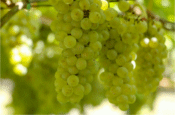
Researchers at a well-known wine producer and distributor in Northern California are testing the performance of commercial enzyme preparations that could help winemakers lower the cost of wine fermentation, or increase favorable qualities in the final wine. For instance, pectinases break down the cell wall of plants, such as grapes, and allow more juice and color molecules to be liberated during the maceration of fruits. When pipetting such enzymes, the R&D team uses Rainin pipettes for higher accuracy and repeatability.
Dosing the flavors
In the product development portion of their work, flavor chemists use Rainin pipettes to dose flavorant molecules into wine or spirit product creations. Additionally, flavor chemists will use organic synthesis to create molecules that provide the essence of desirable flavors (think ‘blueberry’, or ‘aged whiskey’). In order to dose flavor molecules into their product creations, they first take a general wine or spirit from large-scale production and dose in compounds that will have a great effect on the flavor profile of the beverage. In wine and spirits, flavor chemists will modulate the concentration of molecules, such as turpenoids, norisoprenoids and phenolic molecules to make a battery of product prototypes that are then taste-tested. Depending on the palatability of the individual prototypes, a decision is made on which products should enter into production.
Though adding flavor molecules during prototype development is necessary, many wineries do not add flavor compounds to their products. Instead, by varying fermentation conditions, the appropriate concentration of flavor molecules will be created during production. Therefore, flavor chemists communicate flavor chemical profiles to the quality control group at the winery or distillery so that they can determine whether the correct concentrations of flavor compounds have been reached.
Accuracy is critical
Rainin pipettes are used to dose molecules into wine in final concentrations ranging from parts-per-thousand to parts-per-trillion. Compared to glass syringes used in the past, Rainin pipettes make liquid handling of flavor molecules easier and faster and are essential in achieving a much greater accuracy. In one instance, a chemist reported using a range of pipettes from a high volume of 10 mL to a low volume of 20 μL. He figures that the change to Rainin pipettes has dramatically improved their accuracy, repeatability and above all efficiency, allowing them to concentrate on what is important – creating great Californian wines.